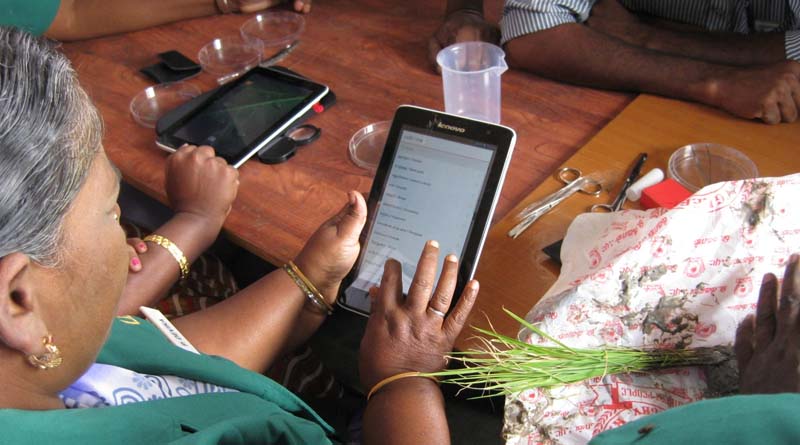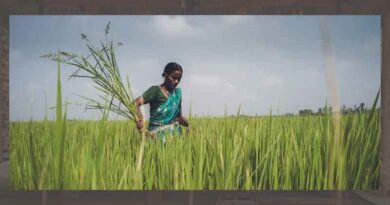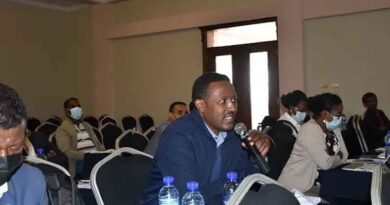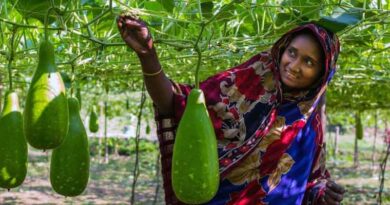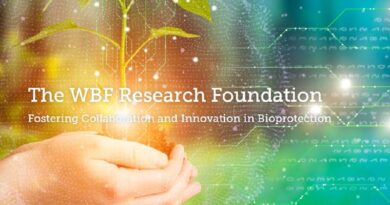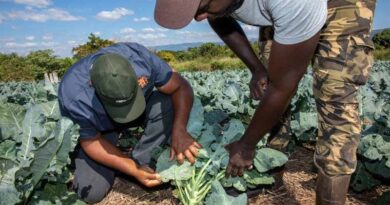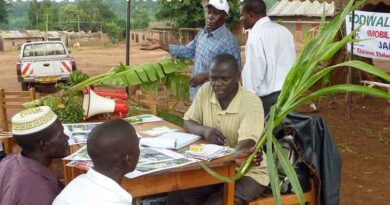Agricultural digitalization: Opportunities and challenges discussed at workshop in India
Authors: Dr R. Rajkumar, Principal scientist, (MSSRF) and Akanksha Nagpal, Manju Thakur (CABI)
06 April 2024, New Delhi: Digital tools have the potential to improve agricultural productivity, sustainability, and adaptability. Alongside longtime partners, M S Swaminathan Research Foundation (MSSRF), CABI recently participated in a workshop hosted by the Resilience Project. The workshop, entitled “Digitalization of Agriculture: Current Challenges, Responses and Opportunities for Smallholders”, provided the opportunity for national and international organizations working with digital agriculture tools to come together in India. The event allowed them to share their experiences and discuss opportunities, challenges and future possibilities for cooperation.
Funded by the Royal Norwegian Embassy, the Resilience project aims to improve smallholder agricultural productivity, adaptive capacity, and livelihoods. In particular, in response to climate and economic changes by building resilience and strengthening the agri-product market value chains. The project works in Odisha and Assam, in the east and northeast of India.
Valuable insights into digitalization
This significant gathering brought together leading figures and experts in digital development to explore and exchange insights on using digital tools in agriculture. The project partners at the event included MSSRF, Odisha University of Agriculture and Technology (OUAT), Assam Agricultural University (AAU), Indian Council of Agricultural Research – National Rice Research Institute (ICAR-NRRI), International Water Management Institute (IWMI), Norwegian Institute of Bioeconomy Research (NIBIO). CABI participated in its capacity as technical support partner for the plant clinic approach. Representatives from Digital Green also attended the event.
Keynote addresses provided valuable insights into the opportunities afforded by digitalization while acknowledging the challenges that must be addressed to establish a conducive infrastructure and ecosystem for the widespread adoption and scaling up of such technologies. The technical sessions delved into practical experiences and discussions on various aspects of digital interventions in agriculture being piloted or scaled up in the field.
Digitalization to build resilience
The workshop started with presentations on the digital interventions implemented under the Resilience Project. The Resilience project implementers Dr. Rahul Tripathi from ICAR-NRRI, Odisha, Dr. R. Rajkumar from MSSRF, and Faiz Alam from IWMI shared their interventions, achievements, lessons learned and challenges.
The next session centred on contextualizing digital tools in enhancing the adaptive capacities of women and youth in agri-food systems. Key presentations included
- An overview of digital public infrastructure
- The role of digital tools in empowering women and youth in agriculture
- Enabling gender-responsive climate-smart agriculture
- The applications of Artificial intelligence and Machine Learning in agri-food systems from a technological perspective.
The discussions revolved around building resilience among smallholder farmers. Speakers, including Dr Pradnya Paithankar from the World Food Programme and Mr Satish Nagaraji from CIMMYT. They each shared valuable insights about the initiatives and strategies to enhance agricultural resilience, particularly in the face of climate change.
CABI digital tools and development
CABI’s Dr. Manju Thakur, Crop Health Advisor, presented an overview of CABI’s digital tools and how they benefit different agricultural stakeholders. Dr Thakur covered the PlantwisePlus Toolkit,PlantwisePlus Knowledge Bank, which is an open-access gateway to practical plant health information. Plus, the CABI BioProtection Portal – the largest global database of biological plant protection products where users can browse registered biological control agents relevant to pests and crops in their country.
Next up, Ms Akanksha Nagpal, Project Coordinator at CABI, discussed the blockers in the use of data for digital interventions. As well as CABI’s interventions in data management and embedding FAIR principles in the grants that help to foster the integration of data-driven solutions into agricultural practices
A platform to harness digitalization for the future
The participants engaged in group discussions, fostering collaborative dialogue and the exchange of innovative ideas. These interactions led to the emergence of actionable insights and laid the groundwork for future advancements and collaborations in digital interventions for agricultural resilience.
Overall, the workshop served as a pivotal platform for knowledge exchange and collaboration. It underscored the importance of digital innovation in addressing the evolving challenges facing agriculture and smallholder farmers. It set the stage for future endeavours aimed at harnessing the full potential of digital technologies to build resilient and sustainable agricultural systems.
Also Read: Corteva Introduces Tolvera™ Herbicide with New Active Ingredient for the Cereals Market
(For Latest Agriculture News & Updates, follow Krishak Jagat on Google News)

